Teacher Proves Even Third Graders Can Understand the Concept of Consent
Updated March 22 2019, 10:46 a.m. ET

A third grade teacher's lesson about consent is going viral because of just how simply she breaks down the concept.
Growing up and trudging my way through school, there were three kinds of teachers I'd encounter. There was the one that really just didn't care and did the bare minimum.
Then there were the exciting and funny teachers who were clearly passionate but weren't very good at their jobs. Sure, they were entertaining and you looked forward to going to their classes, but you could tell they were leading a lesson entirely for themselves. You may have learned something here or there in their classes, and at least they made life a bit more fun, but you weren't really walking out of that room with your mind blown.
Then there were the teachers who had the grind of that old-school educational institution mentality, but they honestly cared about you as a person. And they knew their subject matter inside and out, so they were able to teach it in a way that was simple and easy to understand on a personal level. These are the teachers you think about years later and still feel a smile grow on your face. Their lessons are ones you'll never forget.
Liz Kleinrock sounds like one of those teachers.

It's clear Kleinrock's passion is teaching children, and not just about multiplication tables. She has an entire TED talk dedicated to instructing adults how to discuss taboo topics with children in an age-appropriate way that allows them to understand the concept and integrate the lessons while they're younger.
One such lesson involves a hot-button issue these days: consent. Kleinrock wrote on her Instagram page that "Everything about Kavanaugh in the news has been making me HEATED."
As a woman, it was difficult for Kleinrock to see how the topic of consent was trivialized and obfuscated for viewers and that Brett didn't receive any punishment for his past actions.
Instead of just beating her chest on social media about it, however, she decided to take action.

Since her job is literally shaping the minds of America's youth, that's where she started. "Whenever I get frustrated about the state of our country, it inspires me to proactively teach my kids to DO BETTER," she wrote.
So, she crafted a lesson on consent in a simple enough format that even 9-year-olds could understand.
The chart is pretty straightforward and honestly, genius. How she breaks down the concept using an example of something as innocent, yet also personal, as hugging. She also lists several other examples of things that children know they'd have to ask consent for.
Notice, however, that sex isn't mentioned a single time on the chart, but the same ideas apply to everything Liz mentions in the lesson.
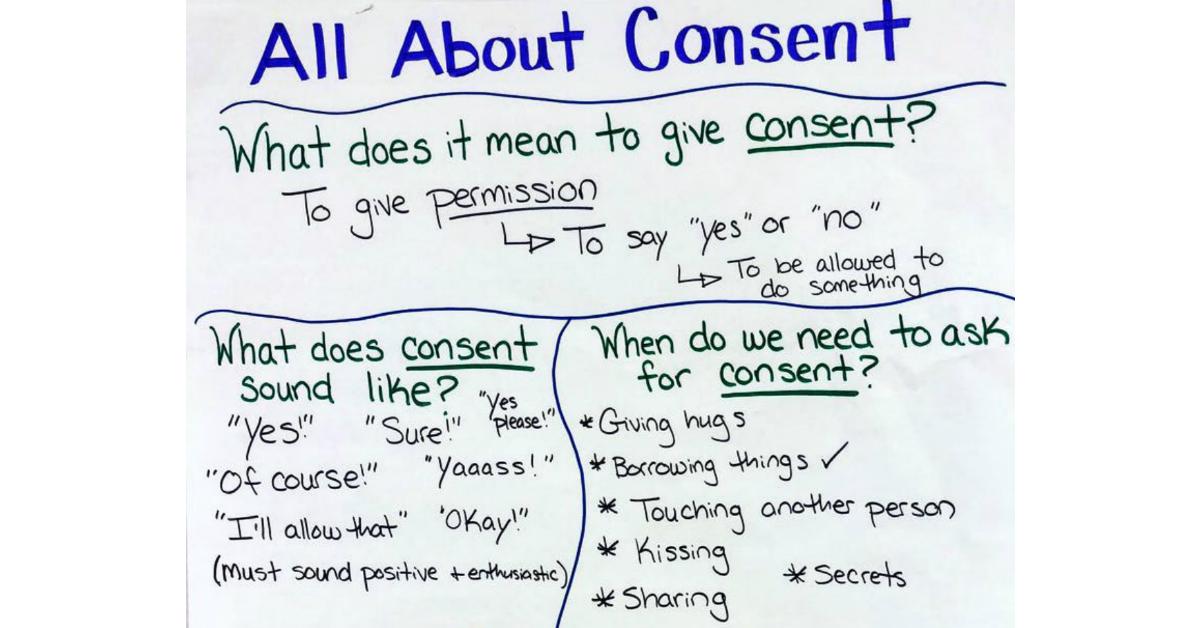
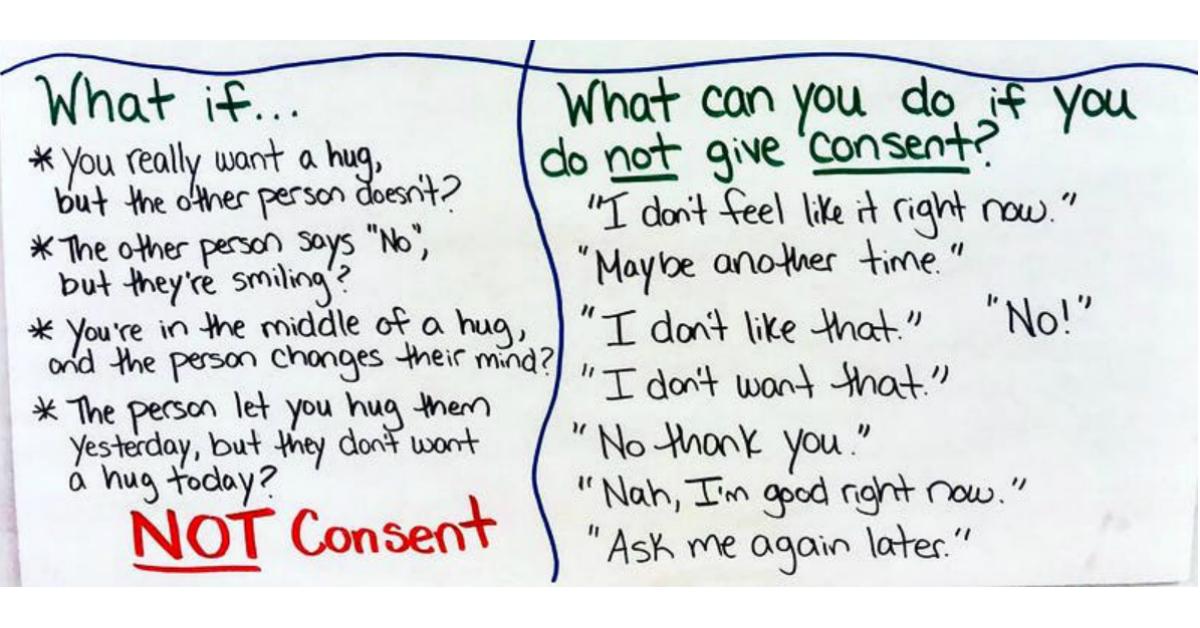
Kleinrock uses age-appropriate examples where consent is required, like when you want a hug, to borrow something or share a secret. These concepts can be applied to the kind of stuff these kids will get into later on in life. Hugging = sex. Sharing secrets = posting nude selfies of your ex after you broke up. Man, bridging those two in my mind right now seems kinda messed up, but Liz definitely does have a point with her lesson.
She's also sure to provide clarity on what constitutes consent and what doesn't. The fact that she broke it down in such an easy, visually digestible format is huge too.
In addition to the chart, she also had kids draw comics to illustrate consent.
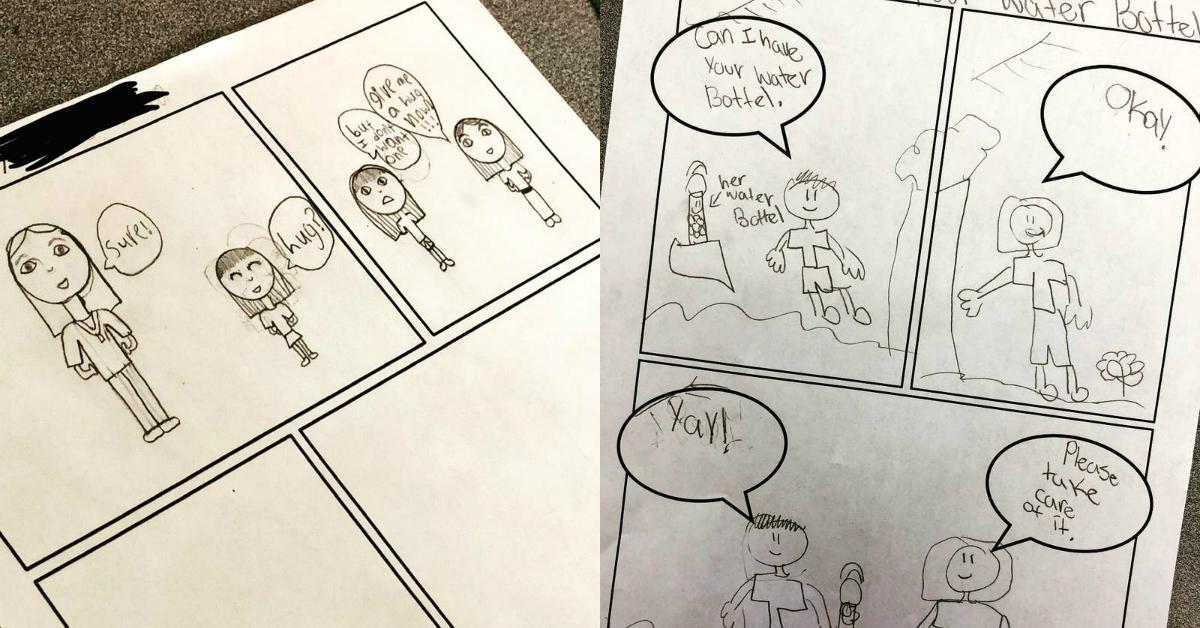
These lessons help kids understand that "good intentions" like feelings of love and affection don't replace the need for consent. No means no, no matter what. No matter what their body language is, if someone is smiling — it doesn't matter.
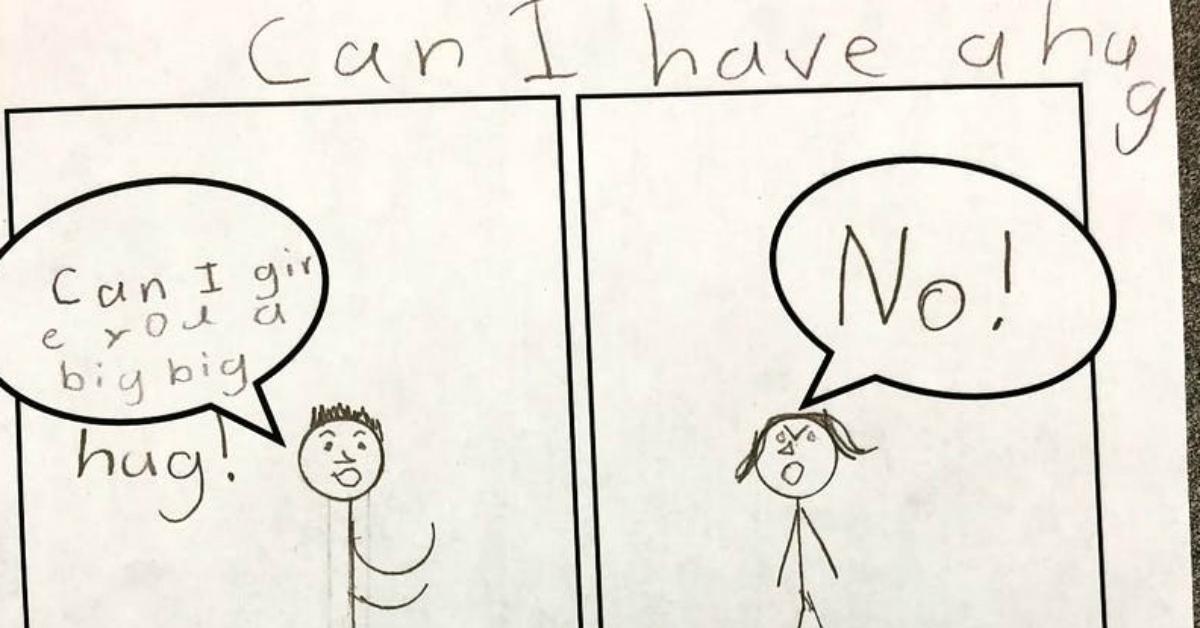
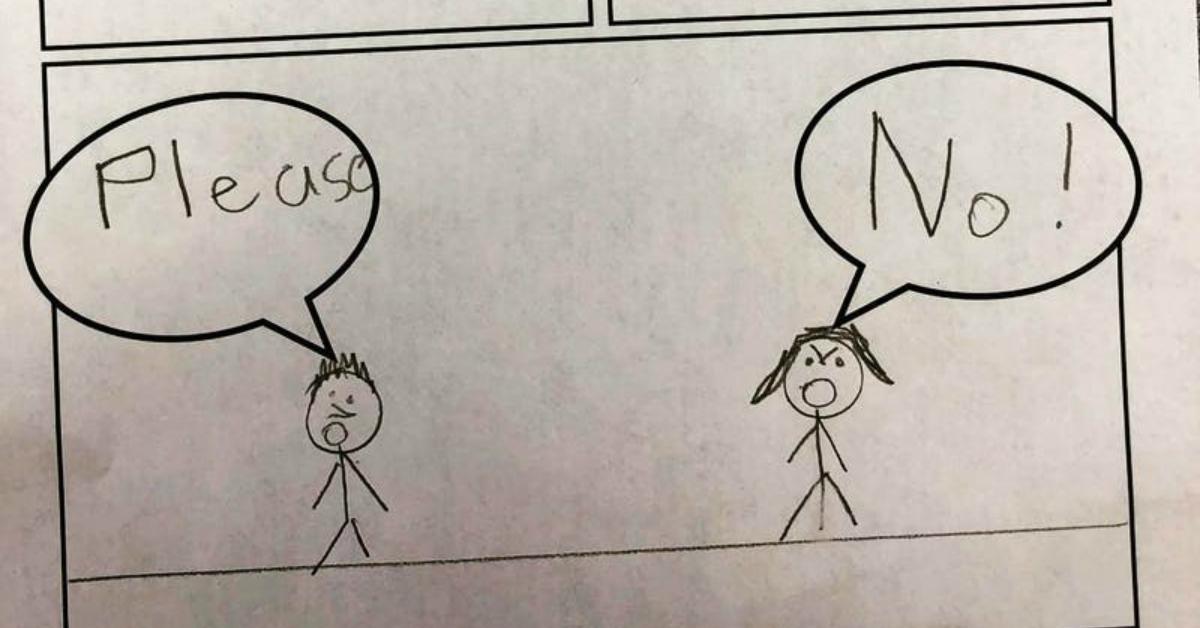
She also asks her students to work on assignments that explain what consent is and why it's important. She also gives them an opportunity to create their own situations and scenarios so they can further understand the concept and apply it in their daily lives.
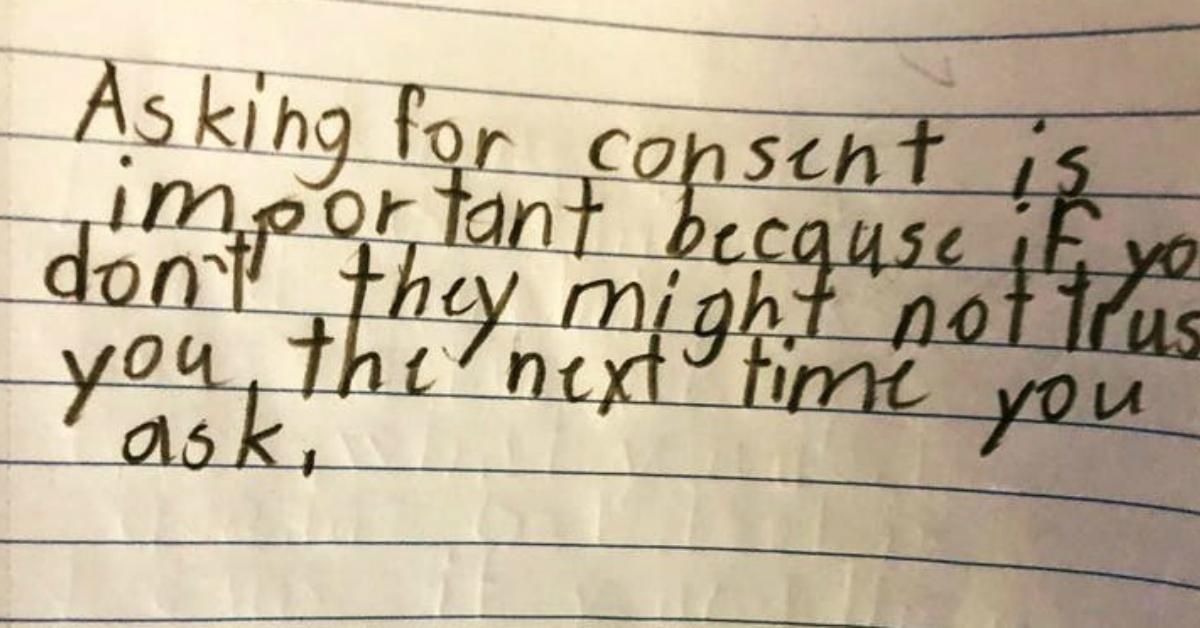
She furthered her lesson by linking it with some related ideas and concepts, like the concept of setting "personal boundaries" as well as understanding "peer pressure" and "social pressure."
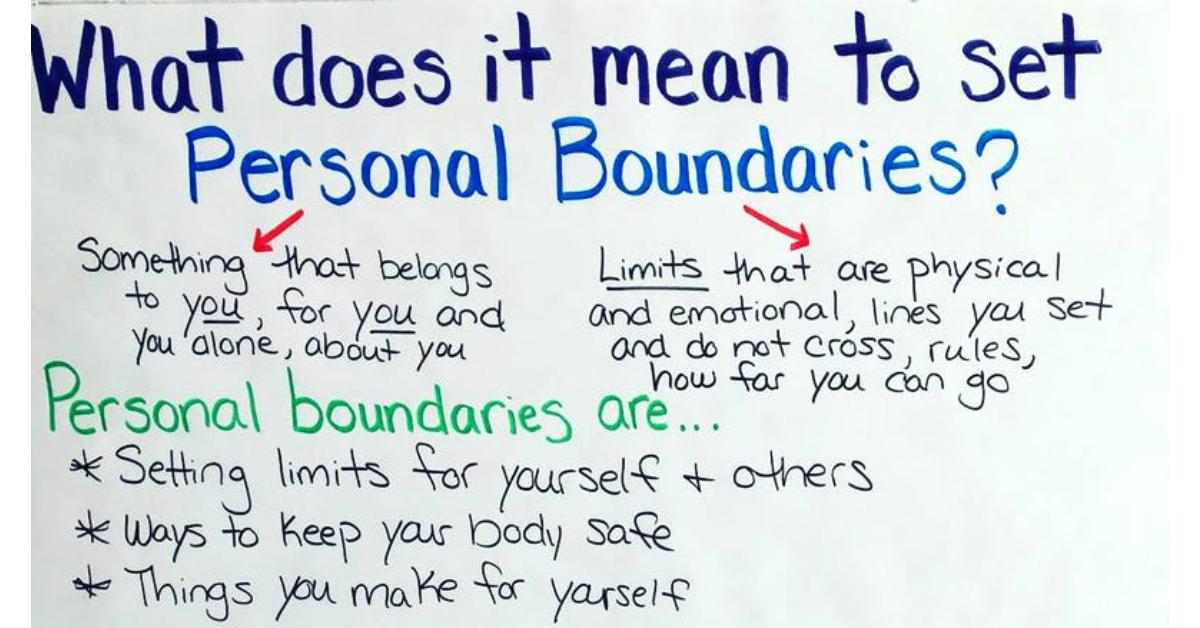
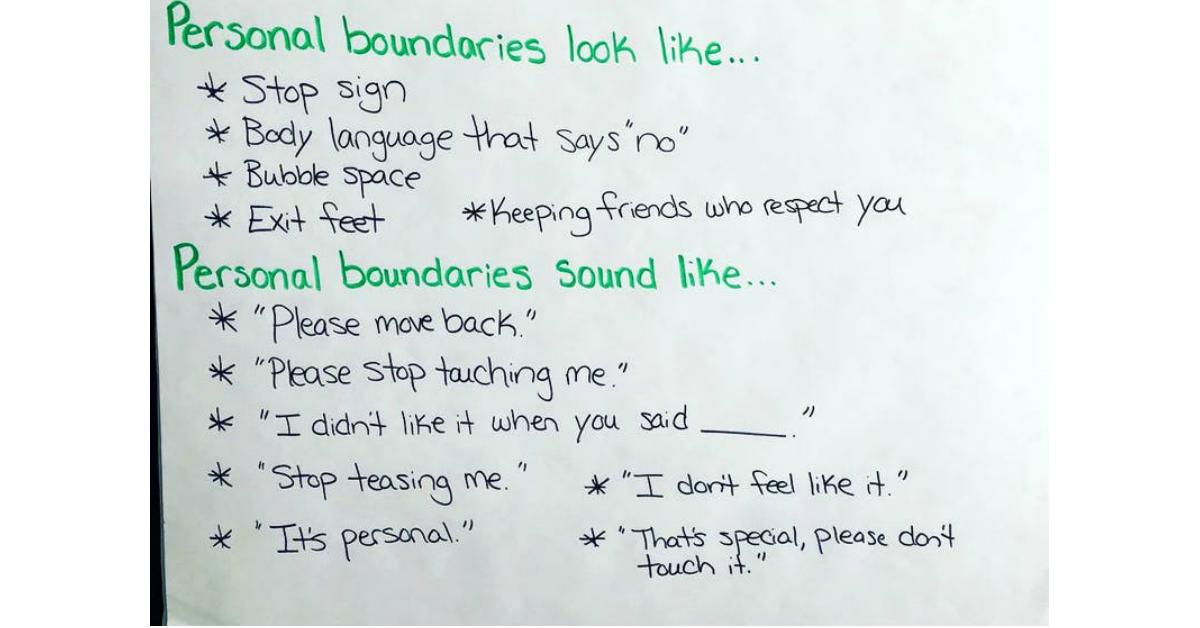
Just like her "consent chart," these lessons follow the same easy-to-digest format. It's evident from the work she's doing that Liz knows a thing or two about how to make complex concepts simple to grasp.
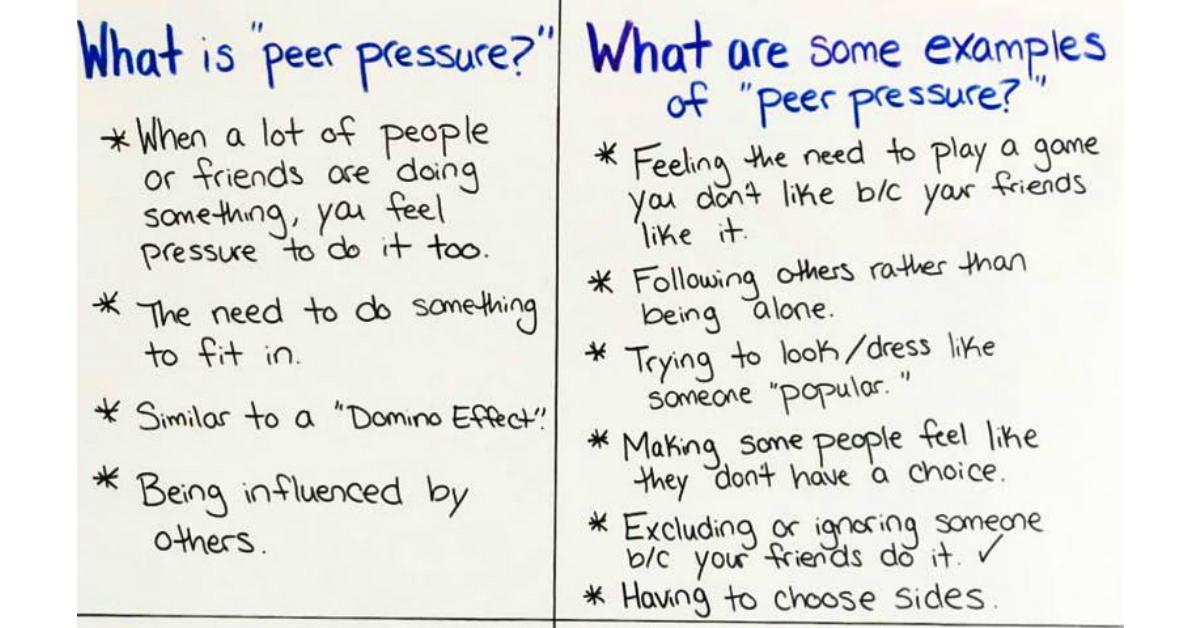
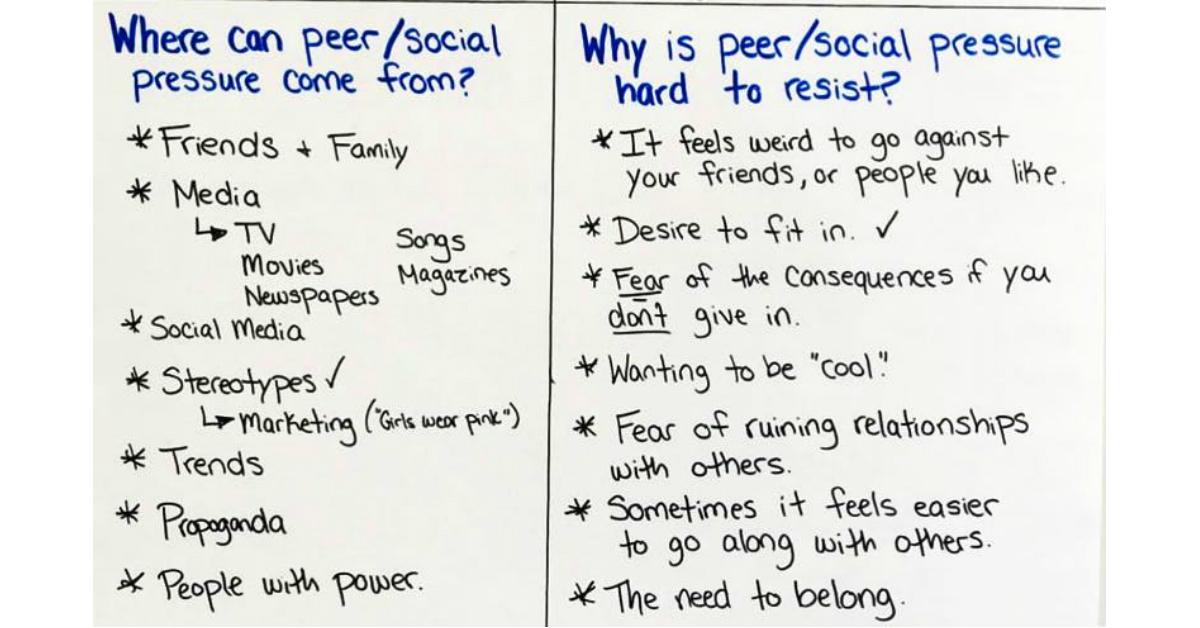
The best part is that she shares a lot of her lessons and illustrations on her Instagram page, so if you ever wanted to talk about difficult issues with your children and are nervous about it, you could totally refer to Liz's work for guidance.